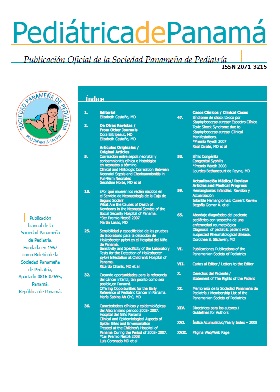Report of a clinical case of Stevens Johnson Syndrome due to the use of Lamotrigine
1,
1,
1
Show Affiliation
Authors
DOI:
https://doi.org/10.37980/im.journal.rspp.20181629Keywords:
Stevens-Johnson syndrome, Intravenous Immunoglobulin, lamotrigine, pediatricintensive care unit, trimethoprim-sulfamethoxazoleAbstract
Stevens-Johnson Syndrome (SJS) is a rare but potentially fatal dermatological emergency that differs from toxic epidermal necrolysis in the percentage of skin detachment and that merits aggressive treatment that includes withdrawal of the medication that causes the syndrome, management of wounds, resuscitation fluids, use of immunoglobulin and early nutritional support to impact the final outcome. Among the factors that have been correlated with a worse prognosis are the patients age, haematological alterations such as thrombocytopenia, neutropenia and lymphopenia, as well as impaired renal function. The case we report is a 6-year-old male child with a history of Autism Spectrum Disorder and epilepsy managed with valproic acid that warranted a change to lamotrigine for not getting the medication. The patient developed a pharyngotonsillitis that was managed with trimethoprim-sulfamethoxazole and 4 days after the antibiotic was finished and 12 days after starting lamotrigine he developed SJS; he was managed in pediatric intensive care unit with hydration, use of immunoglobulin, antibiotics and wound healing with favorable evolution allowing discharge after 19 daysDownloads
Published
2020-11-09
Issue
Section
Case reports
License
Copyright (c) 2020 Infomedic InternationalDerechos autoriales y de reproducibilidad. La Revista Pediátrica de Panamá es un ente académico, sin fines de lucro, que forma parte de la Sociedad Panameña de Pediatría. Sus publicaciones son de tipo gratuito, para uso individual y académico. El autor, al publicar en la Revista otorga sus derechos permanente para que su contenido sea editado por la Sociedad y distribuido Infomedic International bajo la Licencia de uso de distribución. Las polítcas de distribución dependerán del tipo de envío seleccionado por el autor.






